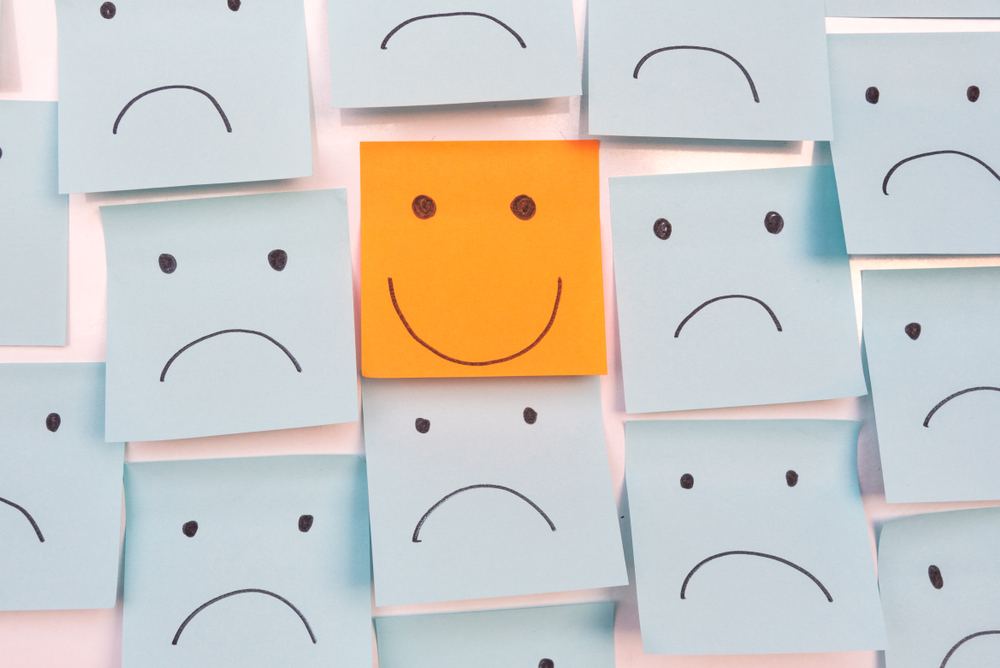With so many worrisome things going on in the world today — I won’t list them lest I add to the anxiety — people who previously were calm and together are getting thrown off balance by even small changes. The added stress of current events is making it harder for them to rebound.
If you are among those feeling unusually rattled lately, it may be a good time to assess your resilience by reviewing its components: being clear on your purpose, having a positive outlook, self-care, flexibility, and self-confidence.
When you have a clear purpose or larger vision for your life, bumps in the road aren’t as unsettling. You have your goal and won’t be deterred by obstacles. If you don’t have a higher purpose, adverse events can seem more disturbing and unduly occupy your conscious mind. Knowing what matters to you and creating a motivating goal will give you a strong foundation to withstand challenges both big and small.
It may be hard to have a positive attitude in tough times, but you can strengthen your resilience by focusing not on what is wrong but on what is right. If you have trouble coming up with positives, start with gratitude. Recognize what you are grateful for, such as good health, supportive friends, a beautiful garden, or a comfortable home. Being aware of these blessings leads to a positive mindset.
 Of course, even a positive attitude can be defeated when we don’t take care of ourselves and end up feeling exhausted, burned out, or in a perpetual bad mood. Make sure you take time every day to do something you enjoy. It can be as simple as petting your companion animal, dancing to a favorite song, or going on a run. Self-care is an exercise in affirming your self-worth.
Of course, even a positive attitude can be defeated when we don’t take care of ourselves and end up feeling exhausted, burned out, or in a perpetual bad mood. Make sure you take time every day to do something you enjoy. It can be as simple as petting your companion animal, dancing to a favorite song, or going on a run. Self-care is an exercise in affirming your self-worth.
Flexibility supports resilience because it allows you to find new ways to solve problems. If you know only one way to do something but that tactic fails, you are out of luck. If on the other hand you know several different approaches, you have a greater chance of success. One of the success factors at manufacturing companies is having multiple vendors so if replacement parts weren’t available from one there would always be other sources.
The final element of resilience is self-confidence. Having self-confidence means you know you possess certain gifts and skills that can help you succeed. Believing in yourself and your abilities helps you to be tenacious and not give up when things don’t work out as expected. A cousin of self-confidence is self-compassion: being kind to yourself and giving yourself grace when you mess up.
Improving your resilience will help you navigate change even in today’s troubling climate. It’s also helpful to review all the changes you’ve gone through in the past and how they turned out. It’s curious how we tend to remember a negative situation with some of the same energy we felt in the past yet fail to notice all the good that came from that change. A client once told me he was reluctant to embark on a new business because of how badly his first endeavor went. When I asked what led to the failure, he quickly identified four key missteps. I asked what he learned from that experience and again he was quick to cite several lessons. Finally, I asked how he would apply those lessons if he started a new venture. As he thought through what he would do, he began talking faster and with more enthusiasm. He realized he had learned a lot and he’d have a much better chance of succeeding this time. Why let all those lessons go to waste?
It is important to recognize that change is always a part of life, and we have it within ourselves to overcome difficulties. I think of the elements of resilience as resources to call upon when struggling. Some clients keep a list of the things that helped them get through a past difficult situation; when a new challenge comes up, they simply pull out their list. If stress tends to make you forget that you have resources, you might want to keep your own list handy.


